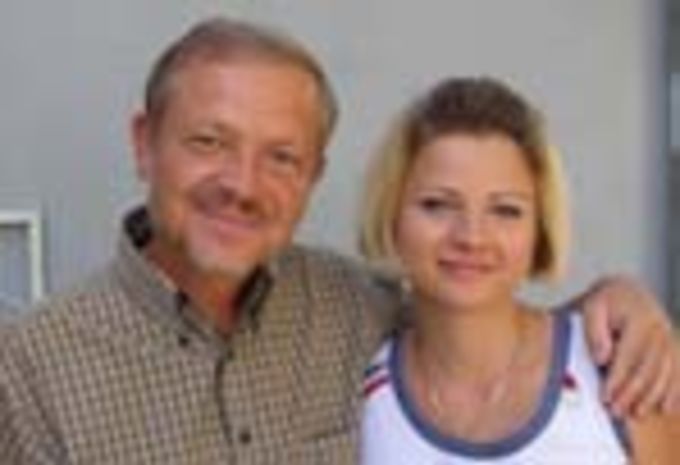- Главная
- О нас
- Наша история
- Служения
- Видение и стратегия
- Руководство Союза
- Структура Союза
- Отделы
- Общий календарь
- Контакты
- Реквизиты
- Обработка персональных данных
- О баптистах
- Видео
- Новости
- Церкви
- Издания
- Подписка

Criminal proceedings have been started in Tashkent
M o s c o w -- Just in time before the start of summer holidays, Uzbekistan’s Baptist children’s camp, “Radost” (Joy) in the mountains outside the capital city of Tashkent has been closed. Its director, the Baptist lay minister and businessman Dmitry Pitirimov, was interrogated by police on 7 July. Criminal proceedings have started. Founded in 1996, the camp has in recent years been holding eight summer sessions for as many as 70 children per session. Total children participating per summer has hovered at 500.
The campaign against “Joy” began on 15 June in the magazine “Horizont” with an article entitled “The Sad and Criminal Deeds of ‘Joy’”. It was followed by articles in other periodicals and media. The article in “Horizont” cites the case of a 5th-grader who had participated in a camp session last summer. According to his parents, he began to exhibit strange behaviour afterwards. Regarding himself to be a sinner, he lost his usual cheerfulness, attempted to pray prior to meals and read continually from materials he had apparently received at camp. “He has suffered a psychological trauma, the remains of which will stay with him for the remainder of his life,” the writer concludes. The article finds it incredulous that Uzbek citizens would voluntarily place their children at the mercy of a Baptist pastor. “Has the son become a sectarian?” the article asks. “Horizont” accuses the camp of sowing discord within Muslim families and knowingly turning minors against their parents. The article also cites the suspiciously low prices at the camp: approximately $5 US per week. It repeatedly states that this “free cheese” has strings attached and is only free at first glance.
Dmitry Pitirimov responds that no children arrive at the camp without their parents or guardians having signed the proper release (putyovka). He can also produce the release which the child’s mother, Raissa Aslonova, signed for her son and a sibling. All releases state clearly that “Joy” is a Baptist camp and describe what Baptists are. Children are even invited to bring along a Bible. The camp’s purpose is listed as “spiritual edification” and parents sign on the line where it states: “The essence of this recreational zone is known to me, I am familiar with the security regulations and in agreement with the conditions for residing there.”
The camp’s director assures that nothing was done covertly – a list of participants was handed to the militia weekly. He also claims that the camp does not use religious literature and that it is not distributed to camp participants. Instead, many positive films of a family nature are shown. “Our assemblies are always interesting. They offer games, sketches and songs accompanied by much joy and laughter.”
The initial article claims the camp’s sanitary conditions are in a “sorry state”. But Pitirimov responds: “Our sanitary conditions are no worse, and often better, than those of neighbouring recreational zones.” After minor repairs, the camp had received sanitary clearance last summer.
Is Uzbekistan Muslim?
Uzbekistan’s population of 27,7 million is purported to be 89% Muslim. Yet Dmitry Pitirimov, an ethnic Russian born in Uzbekistan, insists that Uzbekistan is not a Muslim country. It still has a secular constitution guaranteeing equal treatment to the believers of all religious communities. “We have no conflict between Muslims and Christian believers,” he states. Referring to Muslim groups not allied with the government, he adds: “Muslims here are subjected to more persecution than are Christians.” Uzbekistan essentially has a conflict between a militantly secularist government and believers. He regards the media flurry as part of a state campaign to besmirch the Uzbek Union of Baptists and get their camp closed. “Yet the country never has had Muslim summer camps for children.” Despite its avowedly secular stance, recent Uzbek legislation defines proselytism and missionary work as a crime punishable with up to three years imprisonment.
After an exodus to Russia and the West, only 2.700 believers in 60 congregations and groups remain in the Uzbek Baptist Union. Most of these only became Christians after 1990. Ethnic Uzbeks who convert to Christianity today usually do so in secret. The largest Protestant congregations are Charismatic ones; the majority of Uzbekistan’s remaining Christians are ethnic-Russian Orthodox.
Department for External Church Relations, RUECB
Photo: Dmitry Pitirimov with his daughter in Tashkent.
В связи с событиями, происходящими в мире, многие комментарии приобретают всё более оскорбительный, а порой и вовсе экстремистский характер. По этой причине, администрация baptist.org.ru временно закрывает возможность комментирования на сайте.